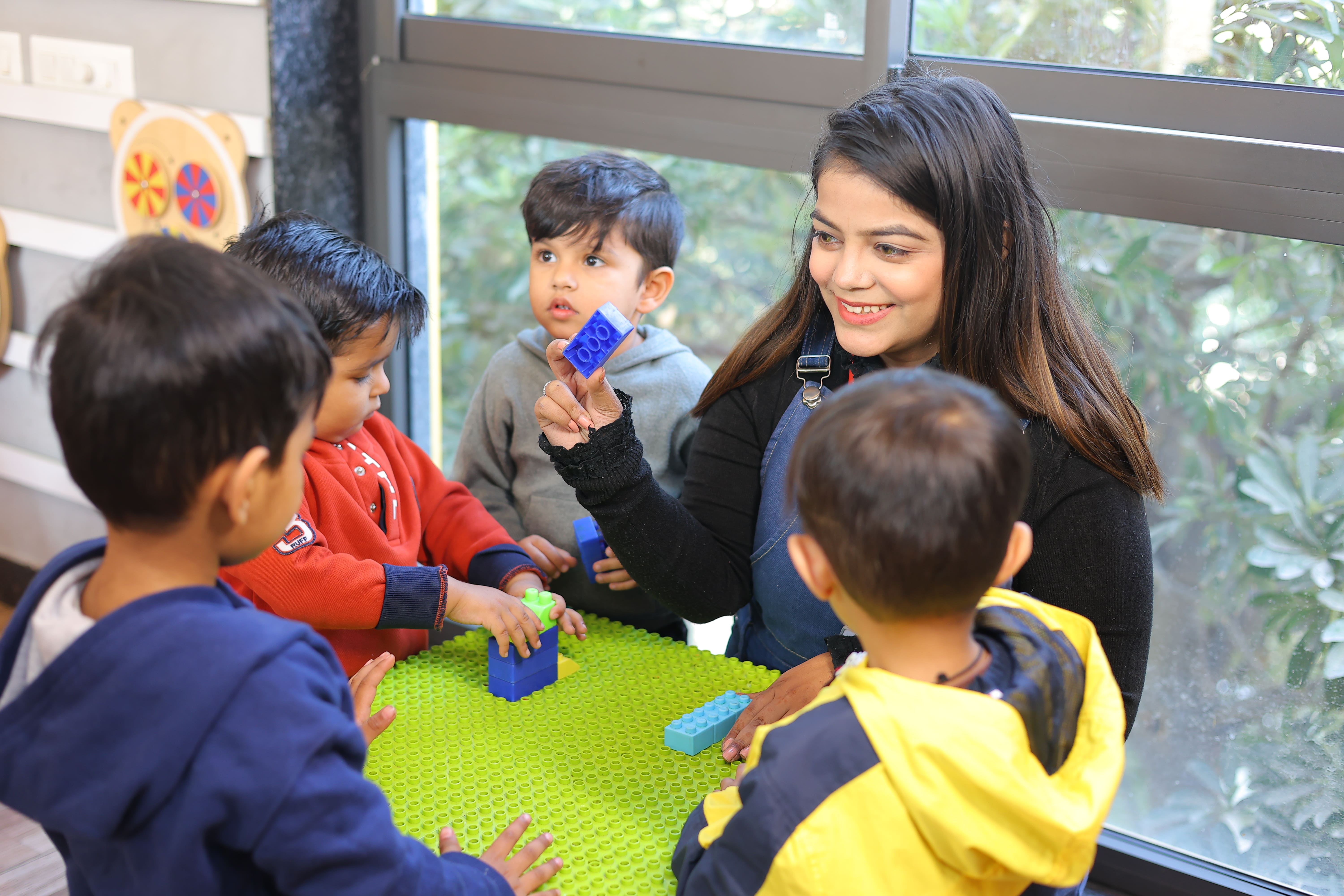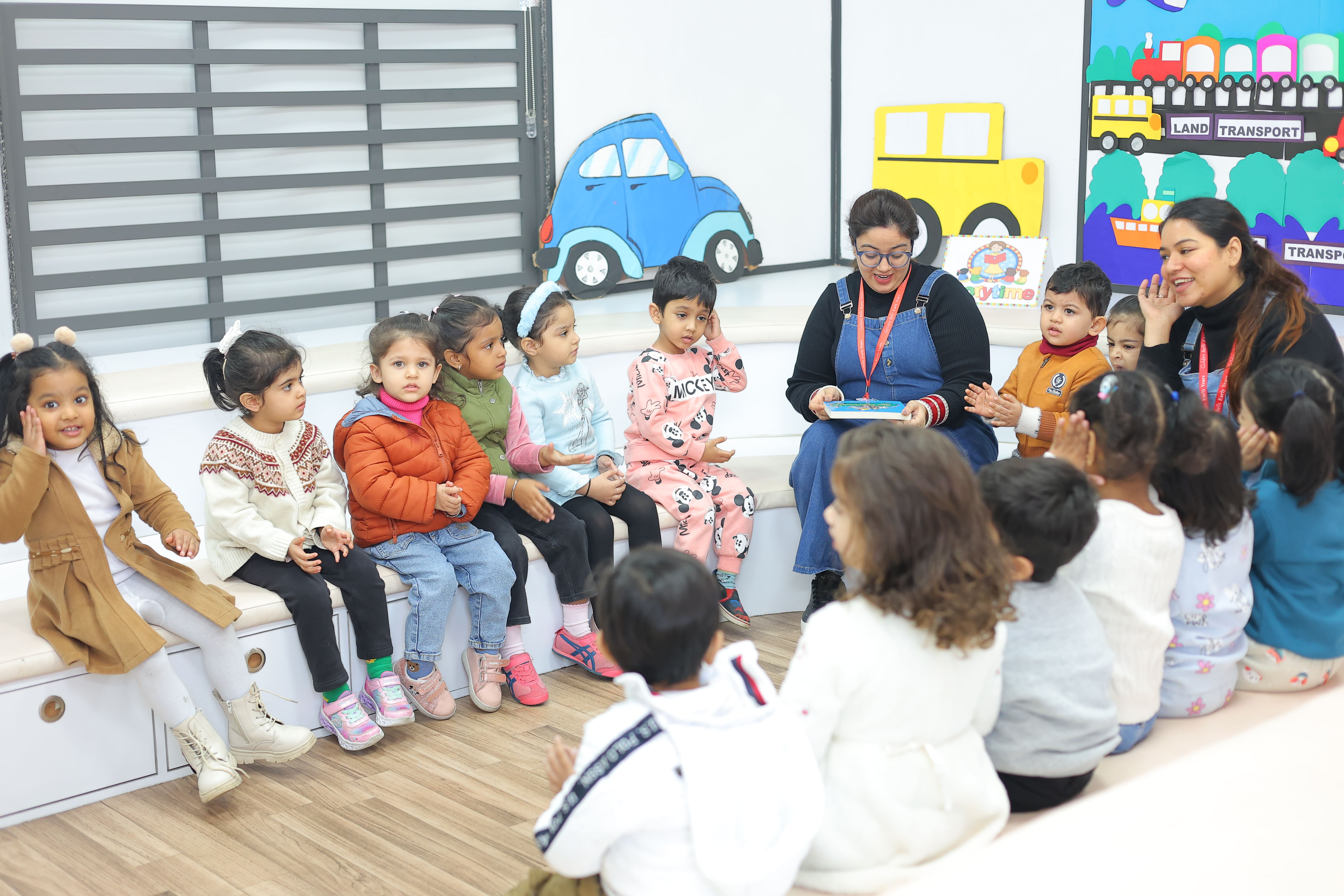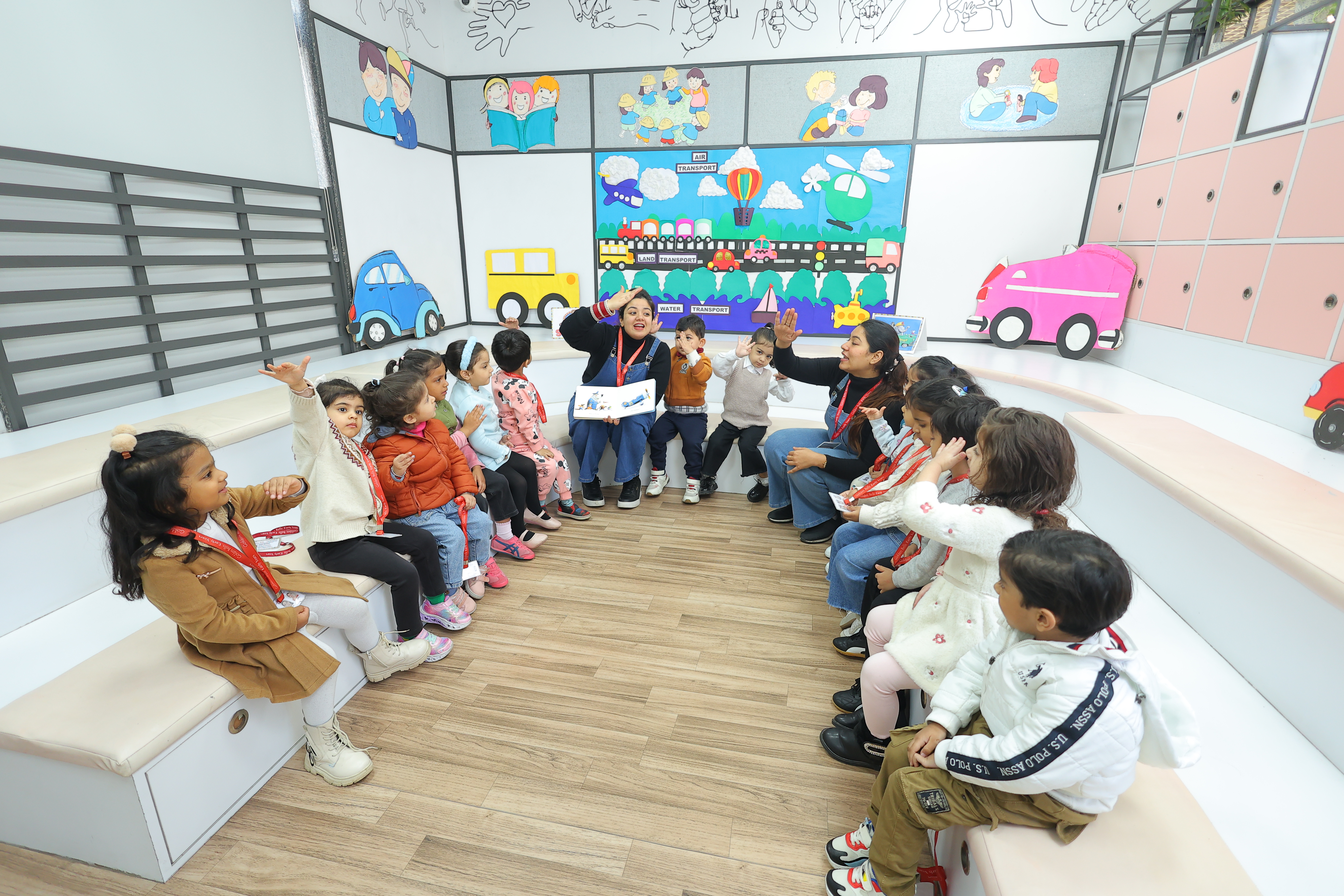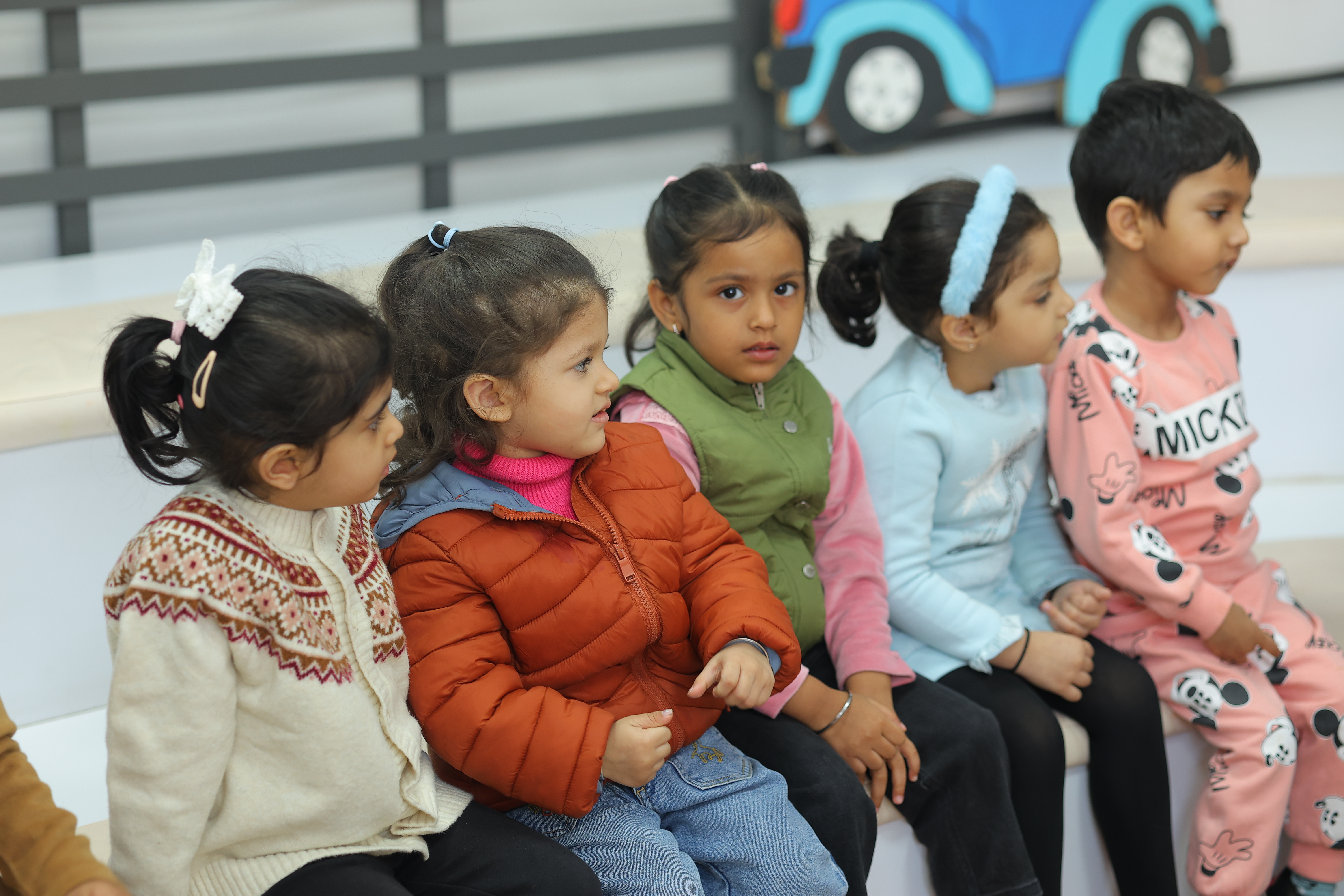The word ‘education’ comes from the Latin ‘educere’ = e- (out of) + -ducere (to draw). Education is not just about putting information in. We have forgotten that it, in fact, begins in the child’s heart.” ~ Vince Gowmon
In scientific terms, Early childhood refers to the period of human life from birth to about age eight, characterized by rapid brain development and the foundation for lifelong health, learning, and well-being. The early years are a vital window of opportunity for growth and development.
Research shows that nearly 90% of brain development happens before the age of five, making these years crucial for building social skills, language, emotional intelligence, and problem-solving abilities. Early learning during this stage shapes their confidence, resilience, and curiosity for life.
When kids’ foundation is set on a correct path, it is followed by huge future benefits: better learning in school and higher educational attainment, better in expressing their feelings, and dealing with emotional situations, which results in major social and economic gains for society. Research shows that high-quality early learning and early childhood development (ECD) programmes help reduce the chances of dropout and repetition, and improve outcomes at all levels of education.
The development of a child’s brain depends on environmental stimulation, especially on the quality of care and interaction that the child receives. Children who are nurtured and well cared for are more likely to develop cognitive, language, emotional, and social skills fully; to grow up healthier, and to have higher self-esteem.
Social & Emotional Development
The integral part of being human means having emotions & feelings, and these are directly related to the social involvement in our day-to-day life. One must learn to develop the ability to interact with others and their environment.
Early years are when children first learn how to interact with others, regulate emotions, and build empathy. Through group play, storytelling, and guided activities. Overall, everyday moments will help your children develop cognitively.
Through such ways, the kids understand/learn how to:
1) Be patient, cooperate, and share.
2) Express emotions rather than throwing tantrums.
3) Become empathic towards others and respect them.
4) Become confident and have high self-esteem.
5) Maintain healthy relationships.
How Golden Bells Early Years Nurtures Strong Foundations
At Golden Bells Early Years, we believe every child is uniquely intelligent. We aim at enhancing Multiple Intelligences of children by providing a stimulating and creative environment and engaging them in innovative activities. We help children connect their learnings to real life and encourage them to express themselves in an innovative manner. Learning through different day-to-day experiences while using the five senses, which allows children to explore, investigate, and make sense of the world around them.
Our approach is rooted in the Multiple Intelligences framework, which ensures that each child’s strengths are nurtured. Intelligence is not a single general ability, but a collection of distinct independent intelligences. These intelligences work differently; some individuals may be stronger in certain areas while weaker in others.
As we have inculcated the theory of multiple intelligences into our school curriculum, here is an insight into them:
1) Inter-personal Intelligence: Here, we work on enhancing the children’s ability to interact with each other, create relationships, and see situations from different perspectives.
2) Intra-personal Intelligence: Here we work on enhancing children’s ability to understand themselves and their emotions, goals & motivations.
3) Musical Intelligence: Here we work on enhancing the ability to sense rhythm, sounds, tones & auditory skills
4) Linguistic Intelligence: Here we work on enhancing the ability to use language, to express in the form of reciting, narrating stories, reading, and memorizing ideas & thoughts.
5) Visual Intelligence: Here we work on enhancing the children’s ability to visualise & mentally manipulate objects. It also strengthens directions & replicates visuals.
6) Logical intelligence: Here we work on enhancing the children’s ability to apply logical reasoning thinking & to perform complex calculations.
7) Kinesthetic Intelligence: Here we work on enhancing the children’s ability of movement & doing activities, may it be gross bodily movement or fine bodily movement & eye-hand coordination.
8) Naturalistic Intelligence: Here we work on enhancing the children’s ability to connect to the natural surroundings, enhance observations & sensory skills.
Our goal is to create fearless learners who are curious, empathetic, and confident as they step into the larger world.
Tips for Parents to Support Early Learning at Home
Parents are the first and foremost mentors in a child’s life before stepping into the world of classrooms. In today’s fast-paced world, parents play a crucial role in nurturing their child’s educational journey outside of the classroom.
Here are simple ways to encourage growth at home:
1) Communication is the key: Talk to your child as much as you can, have discussions, and be all ears to them.
2) Read daily: Reading together builds vocabulary, listening, and imagination.
3) Encourage curiosity: Answer questions patiently and explore new ideas with your child.
4) Create routines: Consistent meal, play, and sleep times build security and self-discipline.
5) Celebrate effort, not just results: Encourage children to try, make mistakes, and learn.
6) Engage in play: Building blocks, puzzles, and pretend play enhance problem-solving and creativity.
Conclusion
The first five years of life are a once-in-a-lifetime window to shape a child’s future. The early years are more than preparation for school — they are preparation for life. By investing in quality preschool education and providing supportive experiences at home, parents and educators can nurture confident, capable, and compassionate individuals. At Golden Bells Early Years, we are committed to laying these strong foundations, because we know the early years matter most.



